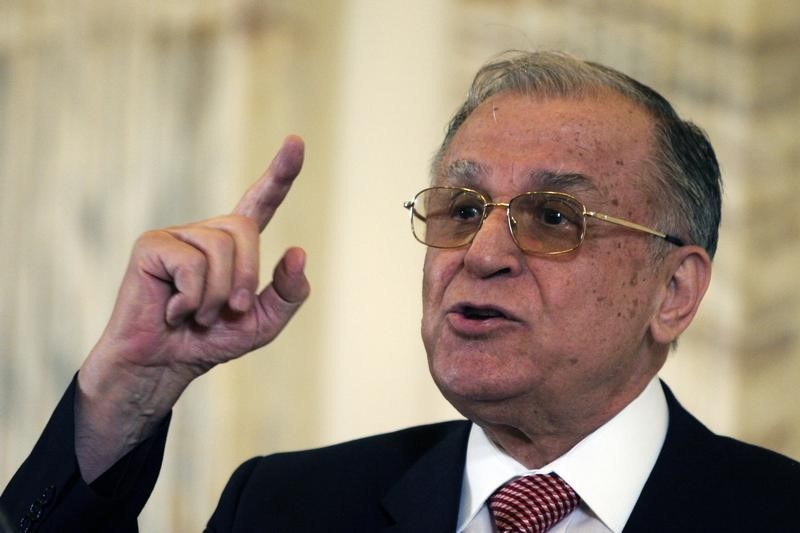BUCHAREST (Reuters) - Romania's former President Ion Iliescu faced Supreme Court prosecutors at a criminal investigation on Wednesday into the storming of peaceful demonstrations in Bucharest in 1990 by tens of thousands of miners.
In June 1990, a month after the first post-Communist democratic elections, Moscow-educated Iliescu summoned 20,000 coal miners to save his ruling National Salvation Front from what he called a "fascist coup attempt".
Prosecutors say he is suspected of crimes against humanity relating to the violence that ensued between June 13 and June 15 after months of peaceful demonstrations.
The 85-year-old has repeatedly denied accusations that he engineered the violence, which Western observers say hampered the country's transition to a market economy and deterred foreign investment for years.
Military prosecutors ordered the inquiry into the University Square rally where they say four people were killed, three others were injured in gunfire and 1,000 more were wounded, the Court's prosecuting office said in a statement.
A prosecutor at the court told Reuters that "Iliescu was summoned and arrived earlier in the day at the (prosecuting) court and prosecutors notified him of the alleged crimes against humanity charges and about the start of the investigation".
His critics at home and abroad accuse Iliescu, who stepped down as president in 2004, and other leading politicians of trying to block reforms and protect the political heritage and ruling elite of the Communist system.
In 2009, prosecutors cleared Iliescu of charges of war propaganda, inhuman treatment and being an accomplice to torture related to the clashes. At the time, they also dropped genocide charges against him.
Iliescu enjoyed widespread popularity after the bloody 1989 revolt when Stalinist dictator Nicolae Ceausescu was deposed and executed by a hastily assembled firing squad.

Some estimates say as many as 1,200 people were killed and thousands wounded during the street protests that toppled the Ceausescu regime.